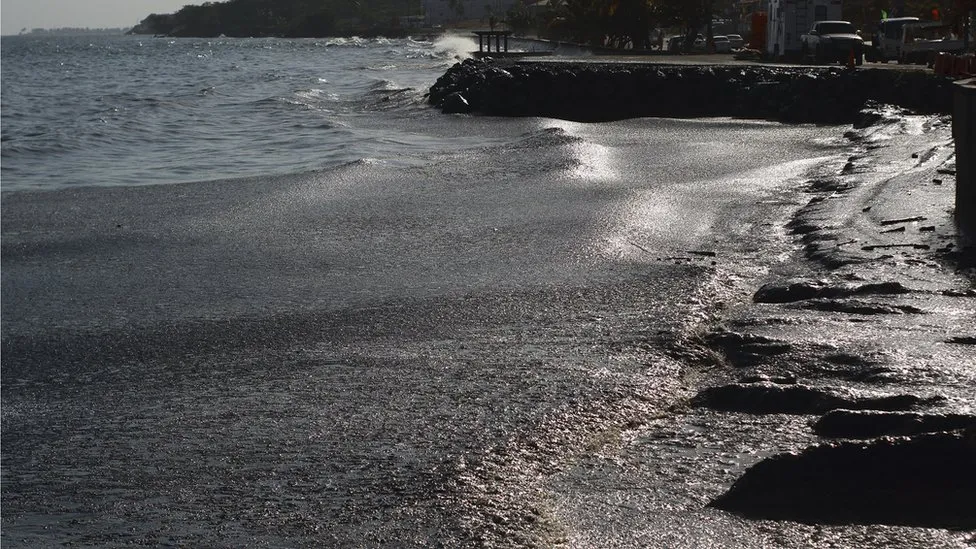Trinidad and Tobago hit by mystery ship oil spill
Trinidad and Tobago, a twin-island nation located in the southern Caribbean, has recently been struck by a devastating oil spill originating from an unidentified ship.
The spill, which occurred in the country’s Gulf of Paria, has posed significant threats to the region’s delicate ecosystem and marine life. Local authorities are scrambling to contain the spill and minimize its catastrophic environmental impact.
The exact source and cause of the oil spill remain unknown, leaving residents and experts puzzled. As investigations continue, there are growing concerns about potential deliberate sabotage or accidental negligence.
Trinidad and Tobago, well-known for its vibrant wildlife and picturesque coastal areas, is now faced with one of its worst environmental disasters in recent history. The oil slick has already started coating pristine beaches, mangroves, and coral reefs, raising fears of long-term damage to these natural treasures.
The spill has prompted a united response from the government, environmental organizations, and concerned citizens. Emergency response teams have been mobilized and are working tirelessly to contain the oil, remove pollutants from affected areas, and rescue stranded animals.
The incident highlights the urgent need for stronger maritime regulations and stricter enforcement to prevent such accidents in the future. It also underscores the global dilemma of balancing economic activities, such as shipping and oil extraction, with environmental preservation.
Trinidad and Tobago’s tourism industry, a vital pillar of the country’s economy, is expected to suffer due to the spill. The damage inflicted on its reputation as a pristine tropical destination may take years to fully recover.
As the investigation unfolds, the authorities are working towards identifying the responsible party and holding them accountable for the immense harm caused by the oil spill. Lessons learned from this incident will hopefully lead to better preparedness and prevention strategies for future potential disasters.
